Forum overview
Research Forum 2024 brought together Academy Fellows, Awardees, researchers and industry partners from all career stages and disciplines.
Each year, the forum also shines a spotlight on incredible innovations with the power to change the world. The cutting-edge research represented here highlights the vital role that the Academy plays in supporting the development of successful engineering breakthroughs and collaborating with business to deliver economic and social benefit to the UK.
Panel sessions
Inclusive Engineering panel discussion
- EPSRC’s Tomorrow’s Engineering Research Challenges published last year highlighted that one of the most pressing actions for the wider engineering community is “the promotion of inclusive engineering outcomes for all with more diverse input”.
- To understand these challenges the Academy and EPSRC, as global funders of engineering research, want to explore how Inclusive Engineering Outcomes are being practiced, find a set of case studies that show good and bad engineering outcomes and draw out key principles that deliver success or failure.
To do this the Academy have appointed Scientia Scripta to undertake a six-month pilot project to engage with the engineering community across different sectors to explore best practice, select case studies from across different sectors and identify the key principles for success.
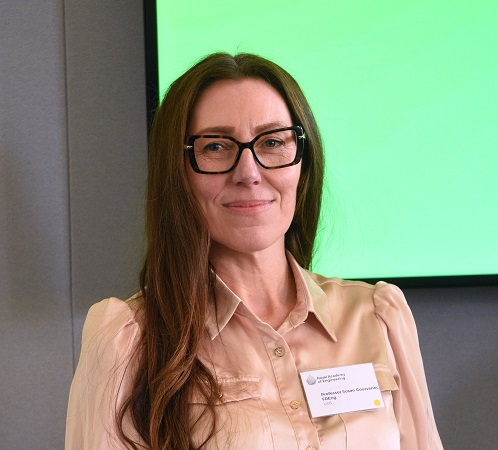
Susan Gourvenec
Panel chair: Professor Susan Gourvenec FREng
Professor Gourvenec’s research addresses technology gaps at each stage of the engineered life cycle of ocean structures, from forecasting ocean and seafloor behaviour, to designing and operating novel platforms for ocean facilities. By harnessing the intelligence of sensing, robotics and autonomy, this next generation of resilient engineered systems will unlock ocean resources more efficiently and more sustainably, with less risk to life.
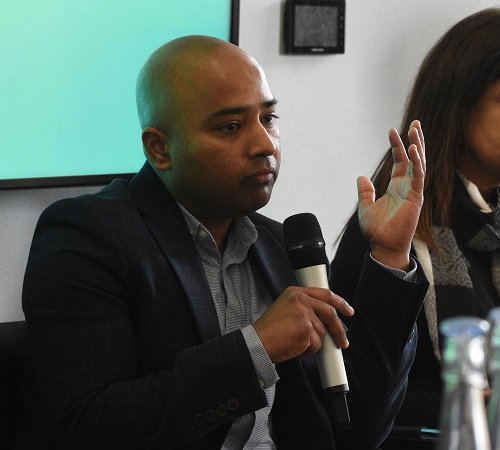
Amit Pujari
Dr Amit N Pujari
Stroke is a major cause of mortality and disability across the world, responsible for 6.5 million deaths worldwide. Around half of stroke survivors suffer from diminished touch sensation in their hand/arm and/or disabling muscle-stiffness (spasticity). Urgent and unmet patient need means treating these symptoms is of significant clinical importance, and technology-enabled techniques can help. Recently completed RAEng Fellowship project has developed novel non-invasive devices to reduce spasticity and improve touch sensation in stroke survivors, with promising results from early studies. To make these devices effective in real-world settings and ready for clinic/home use, this project, in collaboration with industrial partners, aims to gather systematic feedback from users, including patients, their carers and clinicians. This feedback will be combined with iterative evaluation and revision to improve each design and make the devices effective, bringing them one-step-closer to being market ready.
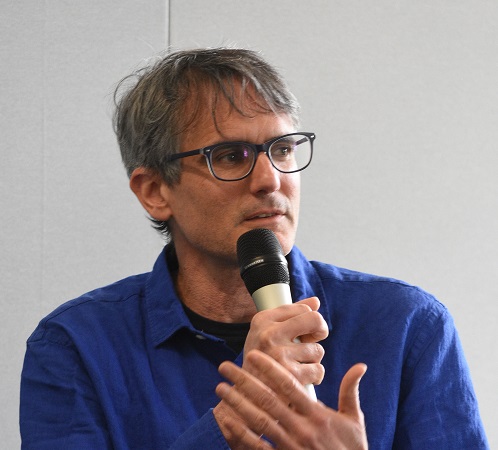
Ilan Adler
Dr Ilan Adler
At present, a large portion of food consumed in the UK is imported. Increasing sustainable, local food production is critical to achieving net zero targets, becoming more resilient and fostering economic growth. This research will help empower smallhold farmers in the UK, by helping them increase productivity while establishing stronger links with academia. An original idea is proposed whereby exhaust gases and waste heat produced from off-grid biogas generators in such farms, which produce on-site electricity from organic waste, can be recovered in the form of nutrients by greenhouse plants. This aims to reduce carbon and other polluting emissions as well as increasing crop productivity.
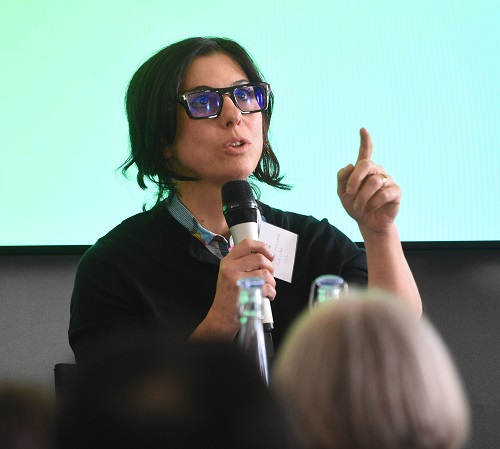
Merhnoosh Sadrzadeh
Professor Mehrnoosh Sadrzadeh
Professor Sadrzadeh holds an award with Cambridge Quantum and British Broadcasting Corporation (BBC) / RAEng Research Chairs in Engineered Mathematics for Modelling Typed Structures. It has been argued that logical models of natural language analyse linguistic structure such as grammar and discourse structures are based on the mechanisms underlying human language processes. Statistical models take account of co-occurrence frequencies and work well in text prediction, leading to large language models such as GPT and BERT. Her work is on unifying the two: the logical and the statistical, in order to develop better models of language processing for both humans and machines. Some of the models developed with colleagues use tensors, a natural inhabitant of quantum mechanics, thus some of the constructions of our models can be learnt even by quantum computers.
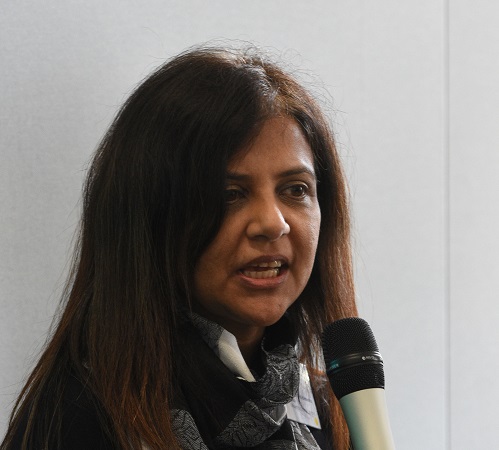
Priti Parikh
Professor Priti Parikh
Priti Parikh is a Professor in Infrastructure Engineering and International Development at the Bartlett School of Sustainable Construction at UCL. She is the founder director of UCL’s Engineering for International Development Centre. This centre focuses on engineering solutions for water-sanitation-energy in low-middle income countries. Priti was named as one of the 100 most influential academics in the UK Government for her work in climate and sustainability and top 50 women in engineering in UK in 2022. She is a Council member at the Institution of Civil Engineers and sits on the board of Engineers Against Poverty and Happold Foundation. Her work has influenced policy and practice especially on evidencing links between infrastructure and Sustainable Development Goals.
Chairs in Emerging Technology panel - Sustainable Society
The CiET award aims to identify and provide long-term support to global research visionaries, developing emerging technology areas that have potential to deliver economic and social benefit to the UK.
From renewable power to recycling, to making our homes more energy efficient, and tackling how we feed a growing population, engineering is a vital field. We will explore the role that RAEng funded engineers have in adapting their research, to develop resilience for the future.
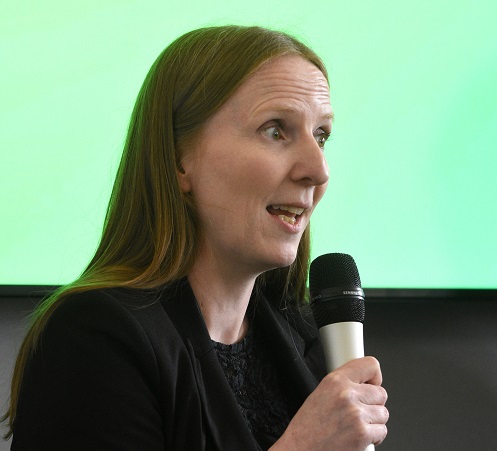
Maire O'neill
Panel chair: Professor Máire O’Neill FREng
Máire O’Neill has made pioneering contributions to the field of hardware security. She is Principal Investigator of the £37M EPSRC/Innovate UK Centre for Secure Information Technologies at QUB and Director of the EPSRC/NCSC Research Institute in Secure Hardware and Embedded Systems. Her work involves designing novel cost-effective hardware security architectures which provide computational performance that is orders of magnitude faster than prior implementations (e.g. in software).
Her research on novel hardware architectures of the Advanced Encryption Standard has been incorporated into >100M digital TV decoders worldwide, whilst her research on Physical Unclonable Functions is being used to address electronic component counterfeiting.
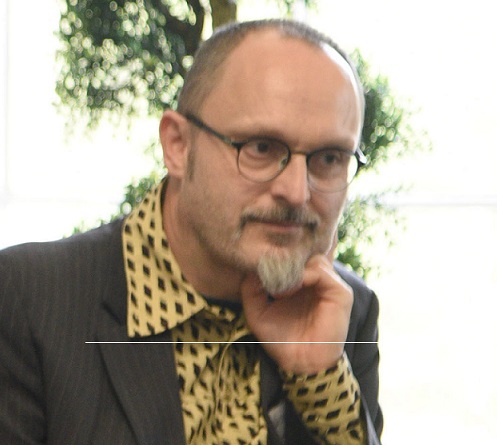
Professor Bruno Merk
Professor Merk aims to develop an advanced nuclear technology to turn spent fuel, currently declared as nuclear waste, into an asset that can be used as fuel for future nuclear reactors without requiring expensive reprocessing technologies as currently happens at Sellafield. This innovative approach will not only significantly reduce the cost of nuclear energy, but also reduce the waste challenge and create a tremendous net-zero energy resource for future generations. He will work with key industrial stakeholders and governmental institutions to create the environment to make this breakthrough happen.
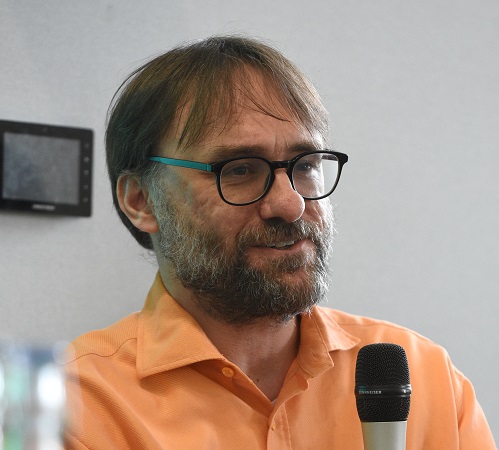
Jason Hallet
Professor Jason Hallett
Professor Jason Hallett will develop new technologies to help build a more sustainable chemical and materials manufacturing sector. His research focuses on novel solvent-based approaches within a circular bioeconomy, easing the transition away from traditional petrochemical products and toward biorenewable alternatives that are cost-competitive and environmentally friendly. By developing these competitive new alternative products, he will demonstrate the power of a circular manufacturing approach and the advantages of renewable feedstocks. He will work closely with his portfolio of spin-out companies to create a technology transfer blueprint for academic-to-industrial activity in the cleantech sector.
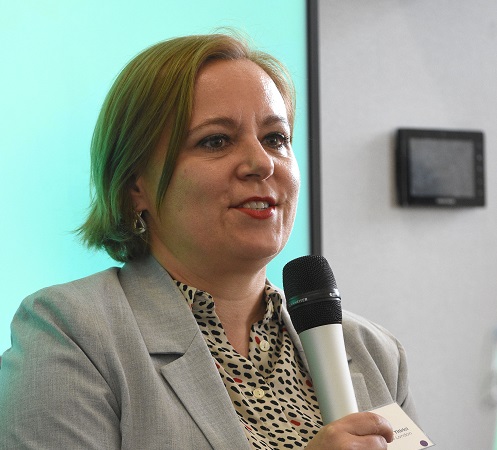
Magda Titirici
Professor Magda Titirici
Professor Magda Titirici will develop sustainable future energy technologies, particularly new kinds of batteries to replace Lithium, clean and low-cost production of Hydrogen from biomass or plastic waste and its use in fuel cells free from precious metals. These technologies will enable more use of renewable energy in future, from grid-balancing for intermittent energy supply to producing customized compostable electronics.
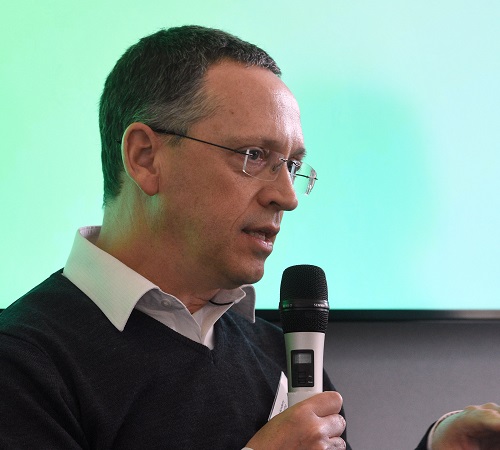
Natalio Krasnogor
Professor Natalio Krasnogor
Professor Krasnogor will investigate innovative ways of scaling up the volume of data that can be stored in living cells by storing, searching, sorting and retrieving data encoded in the genetic materials DNA or RNA. Tremendous advances in DNA information coding, synthetic biology and nanotechnology have made it possible to develop practical and scalable in vivo data structure organoids. Professor Krasnogor, together with his team and his industrial partners, will look at the opportunities for commercialising this emerging technology and also analyse its long-term social implications.
Exhibition and demonstrations
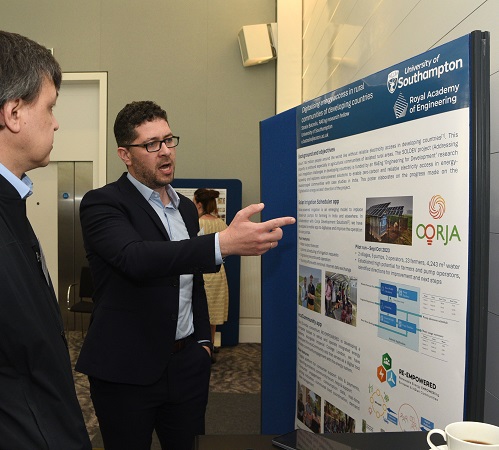
Stratis Batzelis
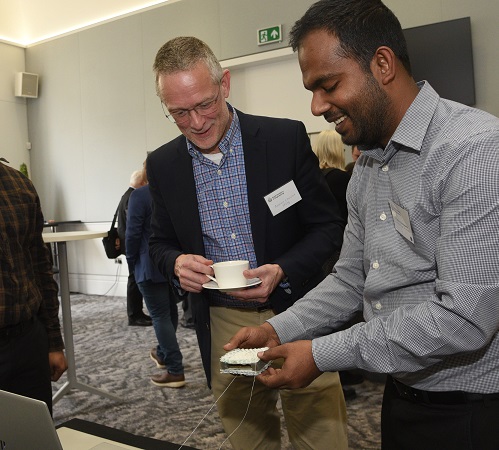
Ishara Dharmasena
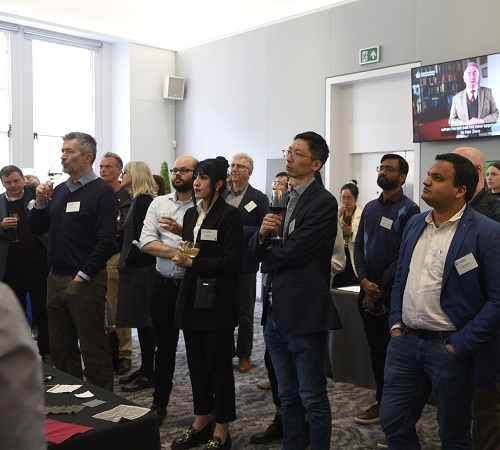
Research Forum audience
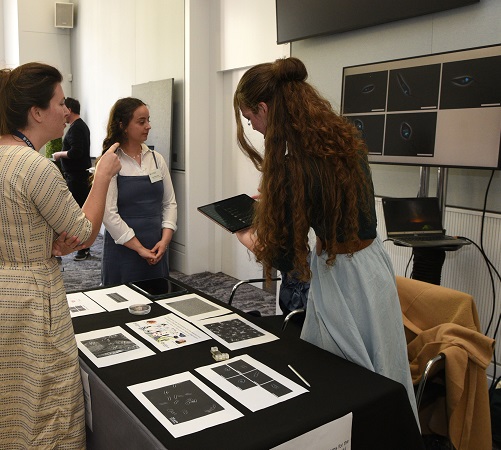
Melanie Jimenez
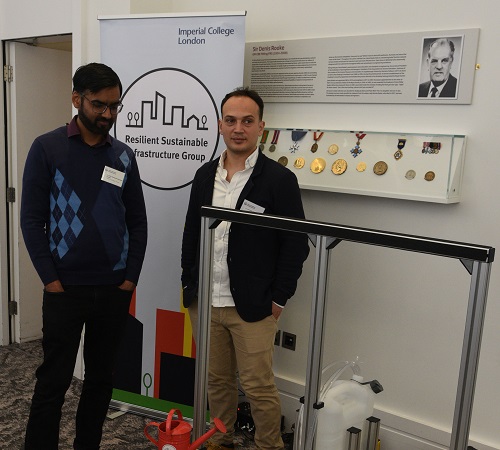
Alea Kia
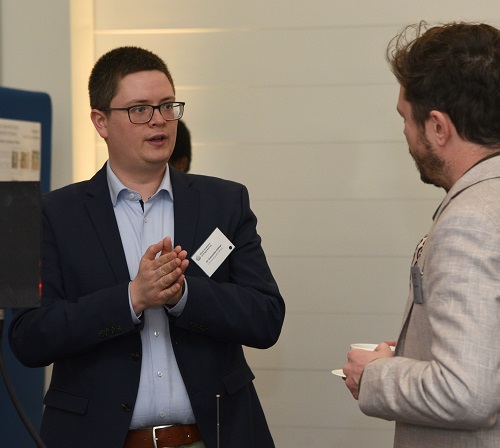
Sebastian Kohler
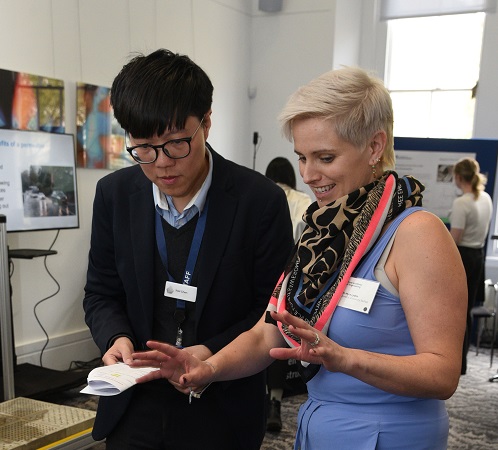
Myra Lydon
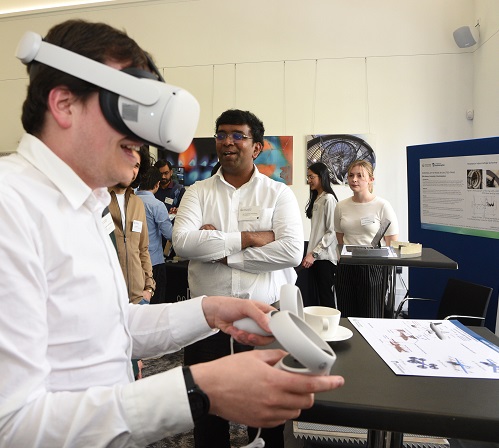
Chaitanya Paruchuri
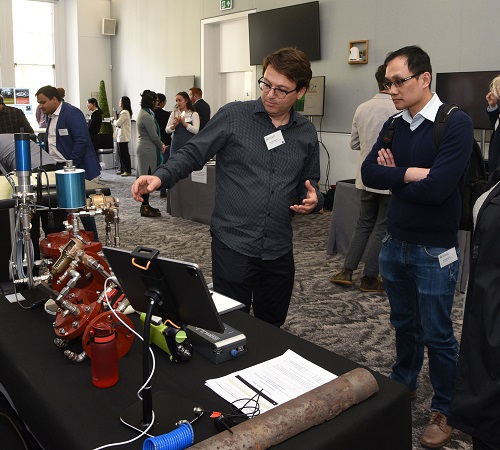
Ivan Stoianov
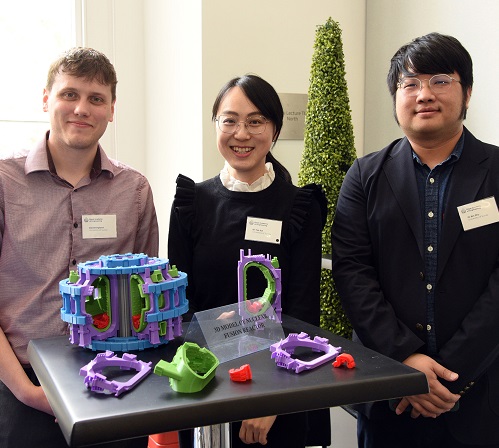
Tan Sui
Exhibitors
Dr Stratis Batzelis
Dr Stratis Batzelis
Dr Batzelis investigates how we can run our electric power system solely on renewable energy. Our net zero targets need a change in basic assumptions in the electric grid with variable renewable generation, such as solar and wind, as well as resources, such as electric vehicles, connecting to the grid via power electronics. However, the existing power system has not been designed for these types of resource, risking unreliable operation, or failing to meet our energy targets. Dr Batzelis explores how we can make renewables more grid-friendly via advanced control algorithm design and derive new methods to assess grid stability, so develop the tools and confidence to reach 100% renewables-sourced electricity. He is looking also into how these targets can be met in developing countries, by means of digital tools for improved solar-driven energy access and economic development in energy-disadvantaged communities.
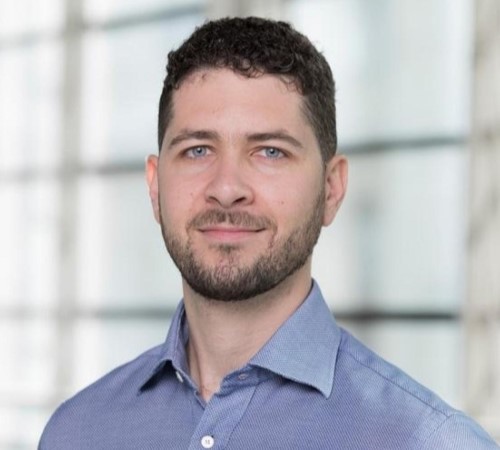
Dr Ishara Dharmasena
Dr Ishara Dharmasena
Dr Dharmasena’s expertise is in smart textiles, wearable electronics, and nanotechnology-based textiles. He currently works on wearable nanogenerators and electronic textiles for energy harvesting from human motion, health sensing, and communication. His recent work has resulted in pioneering theoretical platforms for the optimisation of nanogenerators and scalable smart textile fabrication techniques.
Dr Dharmasena’s Academy Research Fellowship will develop triboelectrically powered super-smart textiles for remote health monitoring. These super-smart textiles will support people with disabilities by monitoring body movements and transmitting sensor signals to healthcare professionals, while powering their own operations by absorbing energy from the natural motion of the wearer. This will allow rehabilitation practitioners to monitor the progress of the patients and make necessary interventions, which will lead to at-home, low cost, and more accessible rehabilitation care. His work will address some of the key issues currently related to wearable health monitoring. He is working in collaboration with a network of partners such as the UK National Rehabilitation Centre, to achieve this aim.
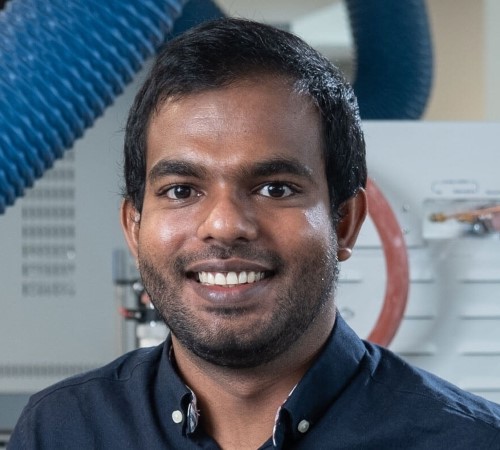
Dr Liucheng Guo
Dr Liucheng Guo
Dr Liucheng Guo is spearheading development of an innovative class of smart materials with integrated sensing and computing capabilities. These materials hold transformative potential for crafting a resilient and intelligent future sensing ecosystem. Traditional electronic systems, especially in the fitness, healthcare and automotive sectors, rely heavily on mechanical buttons and multiple sensors, processed using classical von-Neumann computing principles. This project aims to integrate sensing and computational functions directly into the material itself, to dramatically cut down costs, minimise e-waste and reduce energy consumption. The ultimate goal is a seamless transition from multifaceted electronic systems to flexible touch-sensitive smart materials that simplify structures, enhance efficiency, and are environmentally sustainable. This collaboration between Tangi0 Ltd and KCL will allow Dr Guo to leverage cutting-edge advances in both software and hardware to bring this vision to fruition.
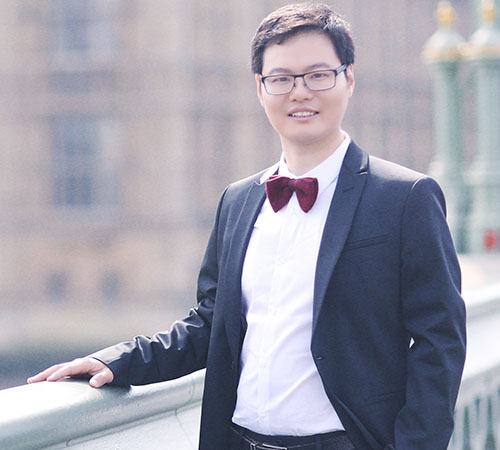
Dr Melanie Jimenez
Dr Melanie Jimenez
Dr Melanie Jimenez has recognised expertise in process engineering, developing microfluidic and sensory systems for medical and environmental sciences. Her work focuses on the design and manufacturing of controlled (micro)fluidic environments to find cells or molecules of interest in complex samples (such as blood), which she describes as finding the needle in a haystack. She is currently deploying her technologies in a range of applications, from point-of-care testing for bacterial infections to endometriosis diagnostics or stem cell characterisation. An area of particular interest for her group is high-throughput single cell analysis (and more specifically cytometry), whereby various microfluidic designs and imaging modalities are tested to better understand cellular changes in health and diseases.
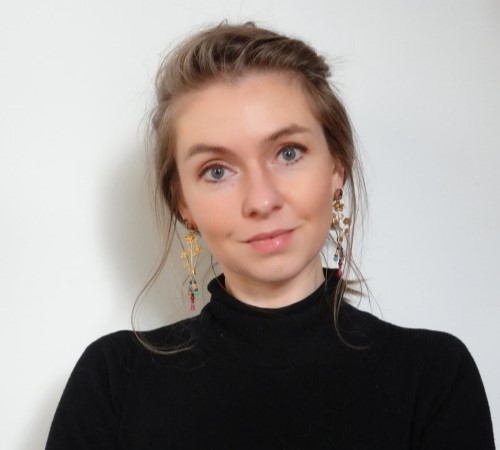
Dr Alalea Kia
Dr Alalea Kia
Airport infrastructure is vulnerable to disruptions caused by severe weather events and aircraft hydroplaning is one particularly severe outcome. Permeable pavements allow stormwater runoff to flow through otherwise impermeable materials. Currently these are unsuited to many applications, because of insufficient strength, durability, long-term permeability, and the need for frequent maintenance. Many attempts have been made to improve the performance of conventional permeable pavements; however, these have all proven unsuccessful. A completely innovative approach is necessary to achieve a durable and strong permeable pavement solving the challenge presented by extreme weather and the need to achieve net zero carbon. Dr Kia will develop next generation, climate-change-resilient, permeable pavements of sufficient permeability, strength, and durability for the extreme airport use case.
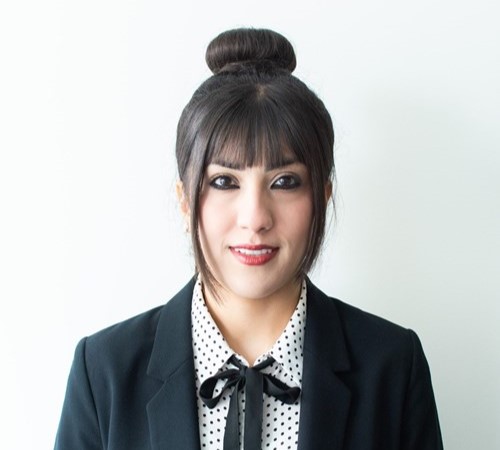
Dr Sebastian Köhler
Dr Sebastian Köhler
The adoption of electric vehicles (EVs) is rapidly increasing the demand for electricity, putting additional strain on the power grid.
To address this, emerging technologies such as bi-directional charging and vehicle-to-grid communication are being introduced. These technologies can help balance the variability of renewable energy production and ensure a reliable and stable energy supply. This project will focus on the physical layer security of sensor systems, such as voltage and current sensors, which are widely used in EVs and the smart grid, to identify and eliminate potential physical layer vulnerabilities in the next generation of power grids.
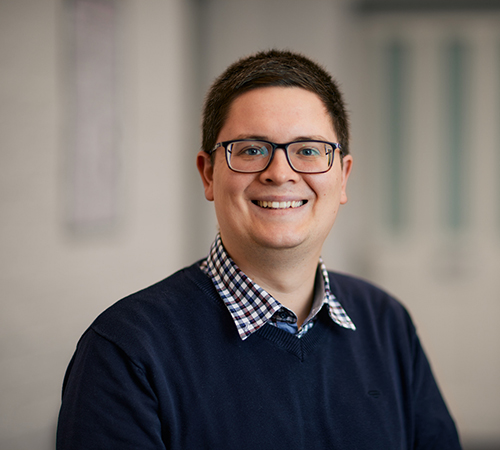
Dr Myra Lydon
Dr Myra Lydon
SMART infrastructure aims to enhance the resilience of road networks through data analytics and greater interoperability across asset management systems. Dr Lydon will use the Northern Ireland road network as a research platform to develop a new bridge management tool by focusing specifically on the vulnerability of bridge structures within the network.
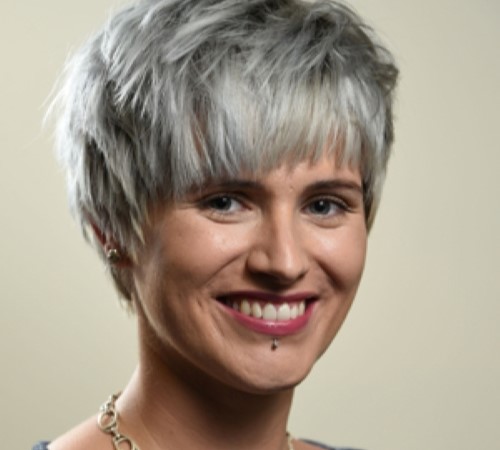
Dr Chaitanya Paruchuri
Dr Chaitanya Paruchuri
The noise emitted from ducted rotors in aero-engines, marine propellers, unmanned aerial vehicles rotors and industrial ventilation fans is a major environmental concern. Noise is one of the key factors that restrict the growth of the UK economy. Dr Paruchuri’s research aims to understand and reduce the tip noise in ducted fans.
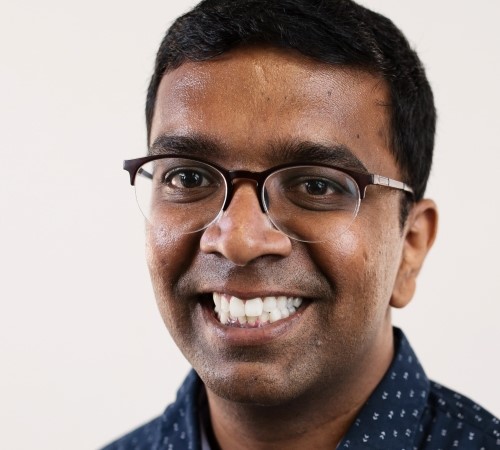
Dr Ivan Stoianov
Dr Ivan Stoianov
Dr Ivan Stoianov is a Reader in Water Systems Engineering holding an RAEng Senior Research Fellowship that aims to advance, analytically assess and experimentally validate optimisation and computational methods for the design, implementation and control of Dynamically Adaptive Water Supply Networks (DA-WSNs). DA-WSNs enable utilities to reduce leakage (water losses) and energy use, and improve their resilience, incident response (including the provision of water for firefighting) and sustainability.
Founding a cross-disciplinary research group InfraSense Labs at Imperial College London, Dr Stoianov leads a new category of engineering (cyber-physical) systems that combines physical processes with computational control in a holistic way in order to achieve dynamic adaptability and efficiency.
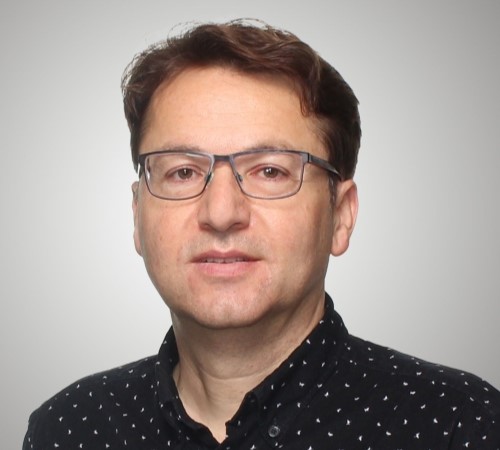
Dr Tan Sui
Dr Tan Sui
Residual stress assessment is vital to evaluate the lifespan and structural integrity of engineering materials and components. In this project Dr Sui developed a state-of-the-art time-resolved residual stress measurement methodology with tunable cross-scale resolution and a real-time data analysis routine, using nuclear fusion technology to demonstrate its impact to the UK net-zero strategy.
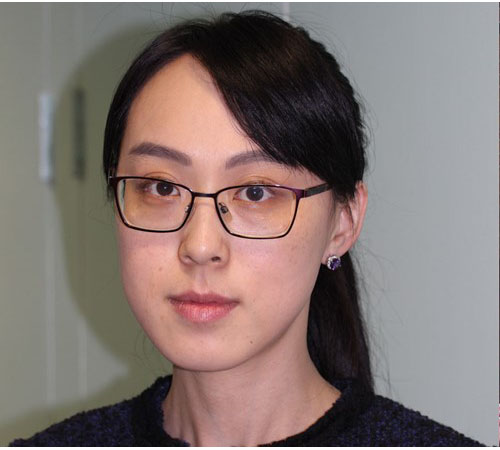
Internship scheme presenters
The exhibition space will have a poster session where undergraduate students from the internships scheme will showcase their research. The interns worked with top-flight engineering researchers on some of the most challenging problems facing society.
Internship poster session presenters and their projects
Our research programmes and awards
Support for research
The Academy runs a number of grants to support excellent researchers carry out engineering activities and to enable clo…
Programmes
The Academy runs an extensive programme of grants and prizes for engineers at every career stage in the UK. Through our…
